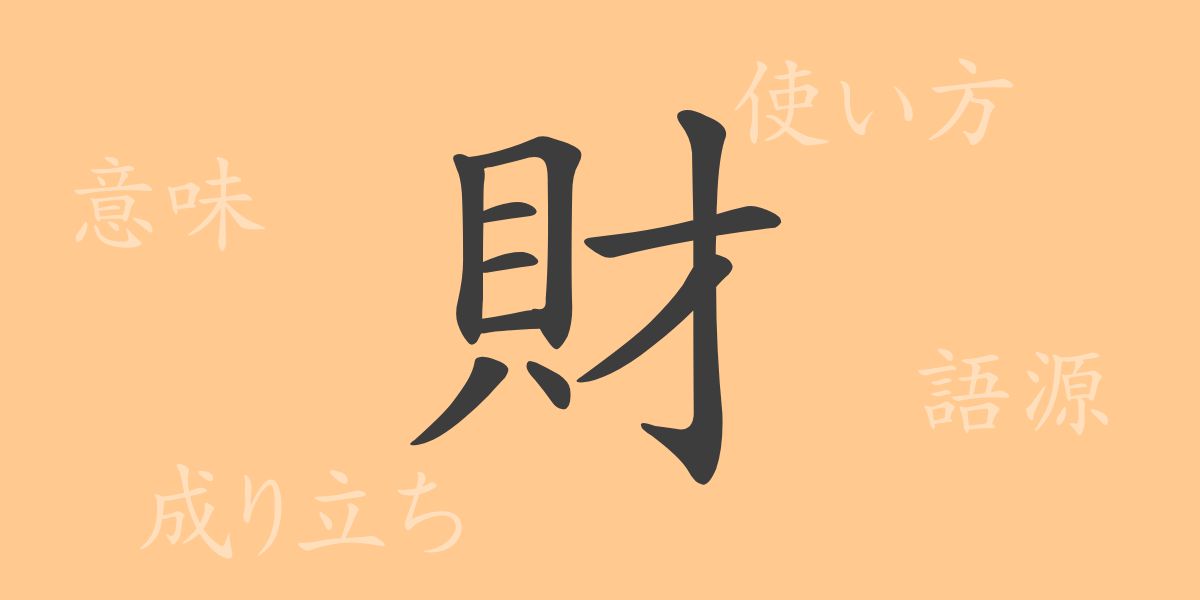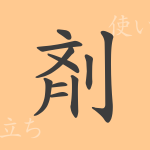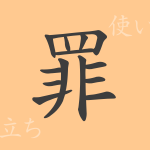The kanji “財” (ざい, zai) is frequently encountered in daily life. However, opportunities to learn in detail about its rich history and meaning are surprisingly rare. This article focuses on the Japanese common kanji “財” (ざい, zai), unraveling its origins, modern usage, and the idioms and proverbs it appears in, revealing its profound world.
Origins of 財 (ざい, zai)
The origins of the kanji “財” (ざい, zai) date back to ancient China. Originally, “財” (ざい, zai) derived from the character for “shell” (貝, かい, kai), symbolizing shell money, which was used as currency in ancient times. Over time, it came to mean wealth and riches. In modern times, it refers to economic value, assets, and resources in general.
Meanings and Uses of 財 (ざい, zai)
The kanji “財” (ざい, zai) is widely used to signify wealth and riches. It encompasses not only economic wealth but also valuable items and resources. While “財” (ざい, zai) can be used alone, it is often combined with other kanji to form compounds, serving various contexts.
Readings, Stroke Count, and Radical of 財 (ざい, zai)
The kanji “財” (ざい, zai) has distinctive features in its structure and pronunciation.
- Reading: The on’yomi (音読み) reading is “ザイ” (zai), and there is no specific kun’yomi (訓読み) reading.
- Stroke count: It has a total of 10 strokes.
- Radical: The radical is 貝 (かい, kai), meaning “shell.”
Idioms, Phrases, and Proverbs Using 財 (ざい, zai) and Their Meanings
There are numerous idioms, phrases, and proverbs in Japanese that include “財” (ざい, zai). Here are a few examples with their meanings:
- 財政 (ざいせい, zaisei): Management of the revenue and expenditure of a country or local government.
- 財力 (ざいりょく, zairyoku): Economic power; financial strength.
- 財布の紐を締める (さいふのひもをしめる, saifu no himo wo shimeru): To tighten one’s purse strings; to cut down on expenses.
- 財を成す (ざいをなす, zai wo nasu): To build wealth.
Conclusion on 財 (ざい, zai)
The kanji “財” (ざい, zai) plays an important role not only in representing physical wealth and assets but also in culture and language. As a common kanji in Japanese, it is indispensable in economic and daily life. Its use spans from ancient times to the present, carrying deep meanings throughout. Through this article, we hope you have gained a deeper appreciation for the rich background and influence of “財” (ざい, zai).

























